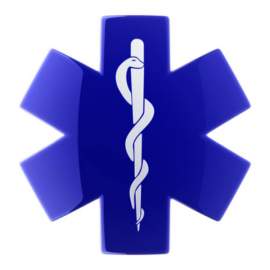
Good Samaritan Laws

Popular In Malpractice
Malpractice Attorney Contributory Negligence Malpractice Law Overview Statute Of Limitations Standard Of Care Medical Malpractice Defense Good Samaritan Acts Fraudulent Concealment Of Evidence Punitive Damages Proving Negligence Medical Malpractice Overview Express Implied Contracts From A Physician
What are the Good Samaritan Laws?
The Good Samaritan law is a compilation of acts or laws that protect individuals who decide to serve and tend to other individuals who are ill or injured. These laws are intended to eliminate or reduce a bystanders' hesitation to assist an injured or ill stranger, due to fear of being prosecuted or sued for wrongful death or unintentional injury at a later time.
The Good Samaritan law is named after a parable told by Jesus commonly, which is often called the Parable of the Good Samaritan (in Luke 10:25-37). The parable recounts the help given by a traveler from Samaria to another traveler who was of a different ethnic and religious background who had been robbed and beaten by bandits.
Good Samaritan laws can vary based on jurisdiction, as well as the laws’ interactions with other legal principles. These can include the right to refuse treatment, consent, and parental rights. Often, A Good Samaritan law does not apply to those who work in the medical field or career emergency responders when they are on the job. Even so, many laws extend the protection of these laws to professional rescuers if they are acting as a volunteer.
Features of the Good Samaritan Laws
An individual is not legally obligated to perform or provide first aid in most states, unless it's part of a job. However, certain states will consider this an act of negligence if an individual fails to at the very least call for help. Generally, if an unconscious victim is unable to respond, a Good Samaritan can assist the victim under implied consent. However, if the individual is conscious and is able to respond, a potential Good Samaritan should ask for the victim’s permission before assisting.
Under the Good Samaritan laws, if the Good Samaritan makes a mistake while giving emergency medical care, the individual cannot be held liable for damages. However, there are two conditions that must be met for this to apply. First, the aid must be given by the Good Samaritan at the emergency scene. Second, if the supposed Good Samaritan has ulterior motives, such as receiving a reward or fee, then the Good Samaritan law is no longer applicable.
Certain states’ Good Samaritan laws offer immunity to those acting as good Samaritans, but if the injuries or illness were worsened, it could result in a claim of negligent care by the volunteer. A Good Samaritan law typically does not exempt a Good Samaritan who willfully acts in a reckless manner when providing advice, assistance, or care.
In certain jurisdictions, unless a caretaker relationship exists before the injury or illness, or the Good Samaritan is somehow responsible for the injury’s existence, no individual is required to give first aid of any sort to the victim. The Good Samaritan law in Vermont and Minnesota do legally require an individual at the scene of an emergency to give a reasonable amount of assistance to a victim. This assistance can be to call emergency services. Violation of this duty-to-assist may warrant a maximum fine of $100 in Vermont and is a petty misdemeanor in Minnesota. At least five additional states, including Nevada and California, have seriously thought of adding this duty-to-assist to their version of the Good Samaritan law. New York's Good Samaritan law provides for immunity for individuals who assist during an emergency.
Legal Principles that Coincide with the Good Samaritan Laws
Imminent Peril
A Good Samaritan law may not necessarily be universally applied. For example, the legal principle of imminent peril can also be applicable. Without imminent peril, the actions of a Good Samaritan can be perceived by a court as reckless and not worth protection. An example of this can be seen if a car accident occurs, but there is no immediate threat of life due to injuries, no danger of a second collision, and no fire. If a Good Samaritan decides to rescue the victim from the crash but somehow causes paralysis or another injury, the court can decide that the Good Samaritan laws are not applicable since there was no imminent peril, and instead the volunteer was acting unnecessarily and recklessly.
Consent
The Good Samaritan must not commit battery or assault by giving aid to a victim without his or her consent (or the legal guardian’s consent over a minor) except in circumstances where consent cannot be received.
The first type of consent that is relevant to the Good Samaritan Laws is implied consent. Consent can be implied if the victim or patient is delusional, intoxicated, mentally unfit, or unconscious. In these circumstances, the victim is unable to make decisions regarding their own safety or if the Good Samaritan has enough belief that this was the case. Implied consent can also be relevant where a minor is being treated, and a legal guardian or parent cannot be immediately reached.
Courts are often very forgiving to Good Samaritans regarding this due to the legal fiction of the rescue doctrine, where peril invites rescue. This type of consent considers whether the average, reasonable individual in the circumstance consent to receiving help if he or she could make his or her own choice and decision.
The second relevant form consent relevant to the Good Samaritan law which stems off of implied consent is parental consent. This occurs if the victim is a minor, consent must be received from a guardian or a parent. In the case that the legal parent or guardian is not present, is unconscious, intoxicated, or is delusional, there is implied consent. The Good Samaritan is not required to stop him or herself from providing lifesaving treatment, such as the Heimlich maneuver or CPR without explicit consent from a parent or guardian. Often, the parent or guardian is then considered to have neglected the minor.



















